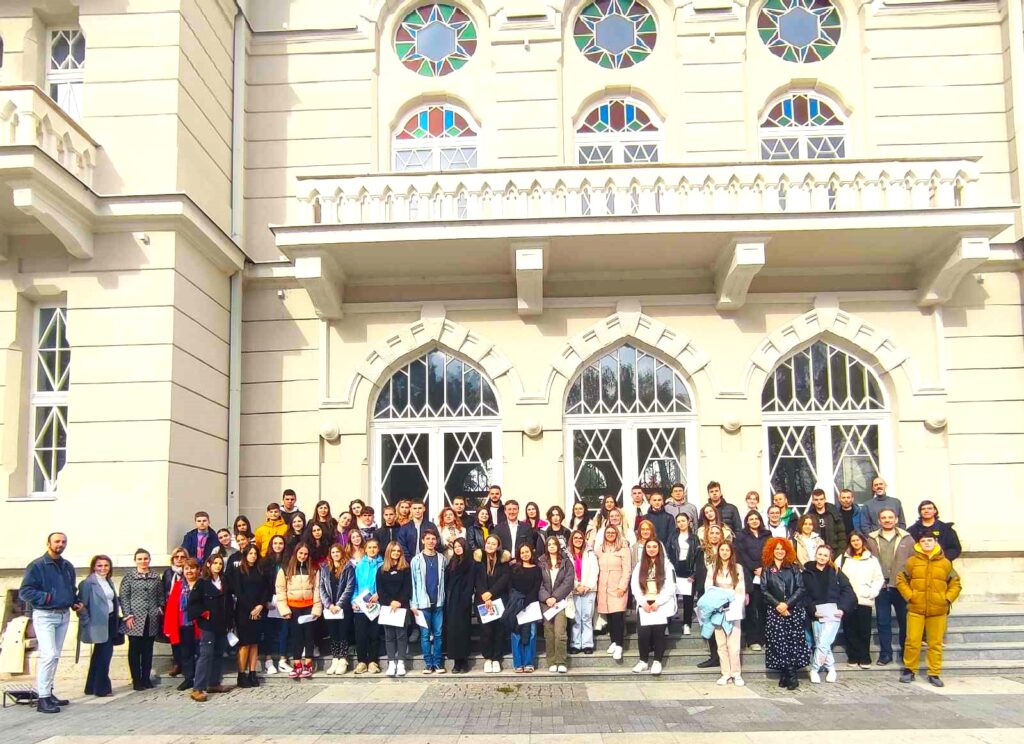Beginning of the peer school for mental health of children and youth

One of the most important elements of the project is the peer school itself, through which we plan to make a significantly large outreach of the topic of mental health. In the second half of September and October, we worked on the animation of the Bitola educational institutions with a focus on primary and secondary schools, as well as faculties. During this period we promoted the projects’ open calls and recruited elementary and high school students, as well as university students motivated to learn more about mental health for themselves and their peers in terms of recognizing certain conditions, but also how to act to help themselves and their peers from the community. We are done with this phase and it is time for action! Today’s event was just that. We gathered all peer educators, psychologists, pedagogues, and others from the professional services of the schools to mark the beginning of the project followed by an interesting program. The event introduced the participants to the planned activities and dynamics for the next period until the end of the school year. The distribution of peer educators’ groups was made based on age/generation and shifts of school to better plan the upcoming workshops in the direction of not missing and disrupting the regular teaching of schools and students. We formed five groups of peer educators, two of them with elementary school students, two with high school students and one with students. The groups had a series of tasks that they had to go through and familiarize themselves with the topic, get to know their peers with whom they will work in the next period, build their group identity and answer the introductory research on the topic to understand the their initial state on the topic of mental health. We also discussed the established channels of communication for the next period and all the formalities required for the smooth running of the upcoming workshops. The workshops will be based on the principles of non-formal education and will take place in the Youth Center in Bitola until the end of February. The peer educators will learn more and discuss with their peers about mental health covering topics such as: anxiety and depression, risky behavior, which means – violent behavior/peer violence, self-harm and substance abuse, building resilience and self-confidence among children and young people and the digital representation of the same topics related to the behavior of young people on social networks. The project has a follow-up phase in the second school semester where these peer educators will implement peer education workshops in their schools and faculties and share the gained knowledge with the end users/their peers in a non-formal setting. The project „Peer school for children and youth mental health“ of the Youth Association YMCA Bitola has been implemented in the frames of the regional program for local democracy in Western Balkans2 Reload2, financed by the European Union (EU), implemented by United Nations Development Program (UNDP). The project is co-financed by the Municipality of Bitola. The project has been implemented by the YMCA in cooperation with Poraka Nova and Amos. Read here to learn more about this project